Charleston Currents #12.35 | July 20, 2020
BELLISSIMA. Sunny days make for great walking along old rice canals at Caw Caw Interpretive Center near Ravenel. It was hot and steamy in the sunshine, but walking in the forest was surprisingly comfortable and unbuggy. Visiting for a nature walk (birds, butterflies, alligators and more) is a great way to break up the coronavirus boredom. If you’ve got a photo our readers should see, send it along to: editor@charlestoncurrents.com. Photo by Andy Brack.
 TODAY’S FOCUS: Remembering the power of John Lewis and those chickens
TODAY’S FOCUS: Remembering the power of John Lewis and those chickens
COMMENTARY, Brack: Stop the bantam-roostering on pandemic, schools
IN THE SPOTLIGHT: Magnolia Plantation and Gardens
NEWS BRIEFS: ‘Charleston is in trouble’ on flooding, report says
FEEDBACK: Wear masks to get virus under control
MYSTERY PHOTO: Historic, pensive marble statue
CALENDAR: Lowcountry Listens starts second wave of tunes Wednesday
S.C. ENCYCLOPEDIA: Pisé de terre
Remembering the power of John Lewis and those chickens
By Sam Skardon, republished with permission | Not many people can say this, but in my first job, I proudly kept a copy of my boss’ mugshot on my desk. I’d look at it and wonder if the 21-year-old John Lewis in the picture, who had just been arrested on the Freedom Rides, thought it was possible that someday a framed version of it would be sitting on the desk of a 21-year-old aide in his office at the U.S. Capitol. He had a slight smile on his face in the picture, so maybe he had a hunch. I asked him about it once and he just flashed the same smirk from the mugshot back at me.
I wish I had counted the number of times I heard Mr. Lewis tell his life story. His voice would roar to life with that deep Alabama accent. He was a preacher and every audience quickly became his congregation. He had been doing it his whole life, as the crowd would quickly learn.
Growing up on a farm in Alabama, his job was to raise chickens. They were his first parishioners. He wanted to be a minister, and his way of training himself was to gather the chickens in the yard and recite a sermon every Sunday. At this point in the story his voice would lighten, he’d add, like a proud dad approaching the punchline of a bad joke, that he could get those chickens to bow their heads, sometimes they’d shake their heads, but he could never quite get them to say, “Amen.”
The chicken story warmed up every audience for the serious talk they’d come to hear, a lesson from one of America’s great civil rights leaders. He’d talk about listening to the radio in high school and being inspired by Rosa Parks in nearby Montgomery, and the local minister who’d organized a bus boycott after her arrest, Martin Luther King Jr. Occasionally, he’d mention the outrage he felt that same year when he learned about the brutal lynching of Emmett Till, who was his age.
It was those events that inspired the future congressman to write King, asking for help getting into his local college, Troy State. At the time, Troy didn’t accept applications from black students. King, likely realizing he had a precocious potential ally on his hands, wrote back saying he could not get him into Troy that year, but included a bus ticket so they could meet in Montgomery and discuss ways for Mr. Lewis to become involved in the movement.
He would go on to be a leader of the early Nashville sit-in movement, a Freedom Rider, chairman of the Student Non-Violent Coordinating Committee (SNCC). At 23 he was the youngest speaker at the 1963 March on Washington, and led what became known as the ‘Bloody Sunday’ march for voting rights in Selma.
40 years later, as a member of Congress, he was awarded an honorary degree by Troy. Writing that letter to King succeeded beyond his wildest expectations, he’d say with a proud smile; it got him the degree without ever having to sit through a class there.
It was those stories of progress that he witnessed – like the mugshot on my desk, the degree from Troy, or the cocktail napkin with a note from President Obama at his inauguration saying, “Because of you, John” – that will forever inspire me. They show how much change can happen in our lives, even against the most impossible odds, and how we can each play a role in it.
Having worked with Mr. Lewis will forever give me a sense of hope, determination and solemn pride. God rest his soul and help us carry on his legacy. As I heard him say countless times, at the end of each talk he gave, “We must never become bitter, never become hostile. Never give up and never give in. We must all keep the faith, and we must all keep our eyes on the prize.”
Sam Skardon served as an aide to Congressman John Lewis from 2010 to 2013. He currently lives on James Island with his wife Leslie and is the Democratic nominee for S.C. Senate District 41. This column first appeared in the Charleston City Paper on Saturday, the day after Lewis died at age 80.
Stop the bantam-roostering on pandemic, schools
By Andy Brack, editor and publisher | There’s been a lot of huffing, puffing and bantam-roostering of late by Gov. Henry McMaster and Republican legislative leaders about when schools should reopen.
Turn the cluck off, folks. We need to do what’s right and safe, not anything related to the politics of the moment.
 There’s been lots of pressure by McMaster and a coterie of state Republican legislative leaders, all mimicking tirades from President Trump in Washington, to get schools restarted as soon as possible. The reasoning is simple — if parents can’t work because they have to continue keeping their kids at home as a pandemic roils the state, an economic recovery is further off.
There’s been lots of pressure by McMaster and a coterie of state Republican legislative leaders, all mimicking tirades from President Trump in Washington, to get schools restarted as soon as possible. The reasoning is simple — if parents can’t work because they have to continue keeping their kids at home as a pandemic roils the state, an economic recovery is further off.
But this reasoning puts economics over safety. In a state that never was truly closed for business, we can see what that’s done so far — nothing. More than 1,000 people have died in South Carolina, one of the nation’s hot spots for coronavirus. New cases are surging. Hospitals are panicking. And as a people, we’re just not doing enough to dampen outbreaks.
So putting kids in schools at this vulnerable point is, how do you say it? Inadvisable, according to public health experts? Way too soon, according to hyper-worried teachers who want safe classrooms? Or just plain idiotic?
McMaster announced in recent days it was vital for schools to reopen with full-time, in-person classes after Labor Day. Yes, parents can decide whether to keep kids at home for virtual learning, but he strongly advised schools to reopen.
“The higher percentages [of coronavirus] that we see now, those are just facts we have to deal with,” said the governor. “But we can’t stop everything. We can’t stop progress in education and people working. We can’t shut down forever.”
McMaster, unhappy with results of online spring learning but backed it as a continuing option, was careful to not say he was issuing a mandate for full-time school reopening, thereby avoiding what some said could be a constitutional crisis.
Ordering schools to open likely would conflict with the powers of state Superintendent of Education Molly Spearman, notably absent from McMaster’s Wednesday press conference. Like McMaster, she is a constitutional officer with constitutional duties. She has pushed back saying she supports reopening schools five days a week, but “as safely and soon as possible.” She says reopenings should be left to each of the state’s 79 school districts.
“We cannot … turn a blind eye to the health and safety of our students and staff when the spread of the virus in some of our communities is among the highest in the world,” Spearman said in a statement. “School leaders, in consultation with public health experts, are best positioned to determine how in-person operations should be carried out to fit the needs of their local communities. I remain committed to supporting them in this endeavor and will only approve those [reopening] plans that offer high-quality options and keep safety as their top priority.”
Derek Black, a constitutional law professor at the University of South Carolina, says the tiff between McMaster and Spearman is a battle the superintendent likely would win if he tried to mandate a return to schools.
“There’s no crisis yet,” he said. “The state superintendent is a constitutional officer and, as a constitutional officer, she stands as the governor’s equal on any matters of education — as his superior, in many respects. That may be distressing for the governor’s office, but it’s been part of the constitutional design of this state since 1868 and remains there to this day.”
Even more curious is how legislative leaders like House Speaker Jay Lucas and Senate President Harvey Peeler were at McMaster’s side during the press conference — especially when you consider legislators actually gave Spearman more power and flexibility earlier this year in emergency pandemic legislation.
In a bill signed into law by McMaster on May 18, lawmakers authorized the superintendent to exercise emergency powers she deemed necessary and appropriate during the pandemic to “provide maximum programmatic and financial flexibility” for schools.
Hmmm. Sounds like Spearman can err on the side of health and safety for South Carolina’s students, huh?
So all of you Foghorns: Let’s focus on masks and curbing the virus, not stirring it up.
- Andy Brack is editor and publisher of Charleston Currents. Have a comment? Have a comment? Send to: editor@charlestoncurrents.com.
Magnolia Plantation and Gardens
 The public spiritedness of our underwriters allows us to bring Charleston Currents to you at no cost. Today we shine our spotlight on Magnolia Plantation and Gardens, founded in 1676 by the Drayton family. It has survived the centuries and witnessed the history of our nation unfold before it from the American Revolution through the Civil War and beyond. It is the oldest public tourist site in the Lowcountry and the oldest public gardens in America, opening its doors to visitors in 1870. Open 365 days a year, Magnolia offers its visitors splendid tours of nature and history and the role African-Americans played in the development of its award-winning Romantic-style gardens.
The public spiritedness of our underwriters allows us to bring Charleston Currents to you at no cost. Today we shine our spotlight on Magnolia Plantation and Gardens, founded in 1676 by the Drayton family. It has survived the centuries and witnessed the history of our nation unfold before it from the American Revolution through the Civil War and beyond. It is the oldest public tourist site in the Lowcountry and the oldest public gardens in America, opening its doors to visitors in 1870. Open 365 days a year, Magnolia offers its visitors splendid tours of nature and history and the role African-Americans played in the development of its award-winning Romantic-style gardens.
- Visit www.magnoliaplantation.com to learn how you can experience a complete plantation experience.
- Click here to learn about events and what’s new.
- To meet all of our underwriters, click here.
‘Charleston is in trouble’ on flooding, report says
Staff reports | An annual federal flooding report found Charleston’s high tide flooding is increasing at an alarming rate.
“The report is very clear: Charleston is in trouble,” Coastal Conservation League’s Betsy La Force told sister publication Statehouse Report. “If we look at the data and continue to ignore it the issue will only get worse. It’s scientific. It’s not political. It proves to the public and political leaders that climate change impacts are happening now … We have to be realistic and plan accordingly.”
The National Oceanic and Atmospheric Administration report included Charleston in data and graphs highlighted 21 times in the report. Charleston saw 13 high-tide flooding events in 2019 but is projected to see only four to seven flooding events this year. The report saidCharleston could experience up to 90 high-tide flooding events by 2050.
In other news:
![]() Nonprofit gets recovery grant. Tri-County Cradle to Career (TCCC) has received a $15,000 grant from the Wells Fargo Foundation to help support its long-term COVID-19 recovery and resiliency plan. According to a press release, TCCC will reconstitute its Community Leadership Council to focus on recovery and resiliency, and a Resource Development Task Force to develop and finalize the framework for shared recovery goals. The nonprofit also is partnering with the Institute for Child Success to examine the impact of COVID-19.
Nonprofit gets recovery grant. Tri-County Cradle to Career (TCCC) has received a $15,000 grant from the Wells Fargo Foundation to help support its long-term COVID-19 recovery and resiliency plan. According to a press release, TCCC will reconstitute its Community Leadership Council to focus on recovery and resiliency, and a Resource Development Task Force to develop and finalize the framework for shared recovery goals. The nonprofit also is partnering with the Institute for Child Success to examine the impact of COVID-19.
Lawsuit challenges Heritage Act. A new lawsuit that includes Jennifer Pinckney, the widow of the late Rev. and S.C. Sen. Clementa Pinckney, alleges South Carolina’s Heritage Act is unconstitutional. The act protects war memorials, including those to the Confederacy, viewed by many as racist. Pinckney voted against the bill in 2000. He was slain with eight other worshippers in a 2015 racist attack on Emanuel AME Church in Charleston. The lawsuit claims the act violates the constitution by placing limits on the ability to amend or repeal the law and by disregarding home rule for local government control over local matters. Read here.
Ports Authority finished comparatively strong. Despite the coronavirus pandemic, the S.C. Ports Authority (SCPA) finished its 2020 fiscal year at the end of June only slightly down from the previous year. Its container terminals handled 2.32 million twenty-foot-equivalent container units, which was down just 2.8 percent from the previous year. The first seven months were considered “very strong” for business, but the pandemic disrupted supply chains globally, which impacted business at the end of the fiscal year. In related news, the SCPA was named one of the state’s best places to work for the second year in a row based on a state survey of employee responses.
Charleston bus project holds promise of S.C. transportation changes. Lowcountry Rapid Transit is a bus system six years in the making between Summerville and downtown Charleston. It is projected to handle 6,784 passenger trips per day. Beyond altering the way traffic flows in the Lowcountry, others expect “the state’s first real mass transit project” to have far reaching impacts on the rest of the state. Read here.
Big I-526 transportation study. You can have your say through August 15 about what you think should happen for the future on Interstate 526 East from Virginia Avenue in North Charleston to near U.S. Highway 17 in Mount Pleasant, one of the most congested roadways in the state. Comments can be made by completing the comment form within the public information meeting webpage, mailing a comment card (download here), emailing the project team at info@i526lowcountrycorridor.com, calling the project hotline at 843.258.1135, or by scheduling an appointment at the I-526 LCC Community Office by phone at 843.258.1135.
Statehouse Report’s Lindsay Street contributed to this section. Have a comment? Send to: editor@charlestoncurrents.com
Wear masks to get virus under control
To the editor:
![]() Robert Redfield, director of the Center for Disease Control, said that if the majority of Americans would wear masks for one to two months, we could get this coronavirus under control. Two conservative states, Alabama and Montana, have recently mandated masks be worn in public. The medical community has been pleading for South Carolina to mandate masks like half the states have already done.
Robert Redfield, director of the Center for Disease Control, said that if the majority of Americans would wear masks for one to two months, we could get this coronavirus under control. Two conservative states, Alabama and Montana, have recently mandated masks be worn in public. The medical community has been pleading for South Carolina to mandate masks like half the states have already done.
Hospitals around South Carolina are running out of ICU beds. Contact tracing is no longer effective because of the large number of new infections daily. Two states have had to bring in refrigerated trailers for the dead because the morgues are all full.
Our governor says a mask mandate “is unenforceable.” But most caring citizens want to abide by the law to protect their families and promote public safety. That’s why seat belt compliance increased dramatically in our state once the Legislature wisely mandated that drivers buckle up. Like seat belts, mask-wearing will save lives.
If we all wore masks for the next two months, we would create a much safer environment for our school children, our teachers, our cafeteria workers, our bus drivers and their families as we try to safely reopen schools. We might even have an opportunity to attend a college football game in September. Our governor should follow Alabama’s Republican governor and mandate masks. Even a temporary 60-day mandate would help control the COVID-19 spread. It’s not a lot to ask given our current public health crisis.
— Tom J. Ervin, Greenville, S.C.
Got something to say? Let us know by mail or email
We’d love to get your impact in one or more ways:
Send us a letter: We love hearing from readers. Comments are limited to 250 words or less. Please include your name and contact information. Send your letters to: editor@charlestoncurrents.com. | Read our feedback policy.
Tell us what you love about the Lowcountry. Send a short comment – 100 words to 150 words – that describes something you really enjoy about the Lowcountry. It can be big or small. It can be a place, a thing or something you see. It might be the bakery where you get a morning croissant or a business or government entity doing a good job. We’ll highlight your entry in a coming issue of Charleston Currents. We look forward to hearing from you.
Historic pensive marble statue
Here’s a statue that can be found in a historic South Carolina location. Send your best guess of what it is as well as something about it. Send your best guess to editor@charlestoncurrents.com. And don’t forget to include your name and the town in which you live.
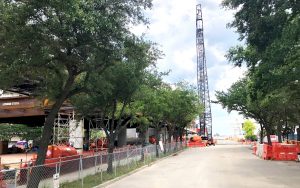 Our most recent mystery, “Some kind of construction going on,” stumped several readers. It showed the skeleton of the new International African American Museum along the banks of the Cooper River. The multi-million dollar museum is expected to open in 2022. More info.
Our most recent mystery, “Some kind of construction going on,” stumped several readers. It showed the skeleton of the new International African American Museum along the banks of the Cooper River. The multi-million dollar museum is expected to open in 2022. More info.
Congratulations to this week’s sleuths who correctly identified the museum’s construction: Jim McMahan of Charleston’ Chris Brooks of Mount Pleasant; George Graf of Palmyra, Va.; and Nicholas Carter of Goose Creek.
Graf shared that “right behind the museum is Gadsdenboro Park, Gadsden Street and The Gadsden Hotel all named after Christopher Gadsden who built and owned the wharf where over 100,000 slaves were brought into the South.”
- Send us a mystery: If you have a photo that you believe will stump readers, send it along (but make sure to tell us what it is because it may stump us too!) Send it along to editor@charlestoncurrents.com.
Lowcountry Listens starts second wave of tunes Wednesday
Staff reports | Admiral Radio will kick off the continuation of the Gaillard Center’s Lowcountry Listens program on July 22 with the first of five new performances.
To tune in to the virtual music series live, go to the venue’s homepage, Facebook page or YouTube channel at 6 p.m. Wednesday. Each performance is recorded in the Martha and John M. Rivers Performance Hall and features four to five songs. Each performance will also be online for viewers to enjoy at their leisure. Richard Todd, host of “The Morning Buzz” on 105.5 The Bridge, will introduce each performance.
On Wednesday, viewers will hear the unique sound of Admiral Radio, a duo of Coty Hoover and Becca Smith, who was voted Singer-Songwriter of the Year by the Charleston City Paper in 2018. The duo, which has played more than 200 shows in the last year, offers music rooted in traditional folk styles that also appeals to modern-day listeners.
Other artists slated to perform include:
- July 29 – Noah Jones
- August 5 – Sarah White + Emily Curtis
- August 12 – Muscle Memory: Poetry & Jazz with Marcus Amaker and Quentin Baxter
- August 19 – Chaquis Maliq The EccentroSoul 1 Woman Band
- See shows from the first series.
Also on the calendar:
![]() National Tequila Day: July 24. Head on over to your local (distanced) tap room for a cold margarita or shooter during this made-for-consumerism “ational holiday.” Look for deals online at the Charleston City Paper.
National Tequila Day: July 24. Head on over to your local (distanced) tap room for a cold margarita or shooter during this made-for-consumerism “ational holiday.” Look for deals online at the Charleston City Paper.
Safe Sounds at Firefly. The final socially-distanced Saturday concert in this series at Firefly Distillery will be July 25 when 20 Ride, America’s # 1 Zac Brown Tribute Band, takes the stage in two shows. The first tribute of its kind, you’ll hear hits like “Chicken Fried,” “Colder Weather,” “Free,” “Toes,” “Highway 20 Ride,” or many more. Also performing: Natty Grass with its symbiotic blend of reggae and bluegrass. Tickets for the events are limited to 500 and no more than four tickets can be purchased at a time. Each set of four tickets will secure a spot in a 10-by-10 square, separated on all sides by 8 feet. Guests are encouraged to bring blankets and chairs to enjoy the concert. You are not allowed to bring dogs, children, and outside food and drink. Tickets are available now to anyone 21 and over at citypapertickets.com. Shows will begin at 7 p.m., with doors at 6 p.m.
Redux show: Through July 24. Redux Contemporary Art Center offers Creative Corridors: The Annual Redux Studio Artist Exhibition through July 24. The Annual Studio Artist Exhibition is an opportunity for Redux resident artists to showcase a sample of their work, as it relates to a specific prompt and is curated as a group exhibition in Redux’s main exhibition space. The exhibition is open Mondays and Wednesdays from 11 a.m. to 4 p.m. and Fridays from 11 a.m. to 3 p.m. More.
Wine Down Wednesday: 5 p.m. to 7 p.m. on Aug. 5, Aug. 19. Old Towne Creek County Park will host this event in West Ashley with wine and live music — a perfect pairing to relax at midweek. Food truck fare will be available. Cost: 15. Limited to 150 people. Advanced registration required.
Online offerings:
- Gibbes Museum. You can enjoy lots of local art offerings through the website and social media accounts of the Gibbes Museum. At 10 a.m. on weekdays, the museum posts virtual readings and workshops on Facebook. Find more online.
- Avian Conservation Center. Access videos and live streaming presentations online to learn about what’s going on at the Center for Birds of Prey.
- Around the world. You can visit 500 museums across the world online through this Google amalgamation of sites.
If you have any online events, drop us a line (editor@charlestoncurrents.com) and make sure to put “Online event” in the subject line. Similarly, if you’ve got cool ideas for stuff to do while in isolation at home, send them our way.
Pisé de terre
Pisé de terre, or “rammed earth,” is an ancient form of building construction. Clay is the basic material in rammed earth buildings. After a foundation of brick or stone is laid, clay is poured into wooden molds and then tamped until solid. Additional layers are added until the walls reach the desired height, and the finished walls are coated with stucco. In the mid–nineteenth century Dr. William W. Anderson, a Maryland native who settled in Stateburg in 1810, used it to create two of South Carolina’s most distinctive works of architecture: the Borough House and the Church of the Holy Cross. He was influenced by S. W. Johnson, who introduced methods of rammed earth construction to America through his book Rural Economy (1806). In 1821 Anderson used the technique to rebuild the wings of the Borough House, the main building at his Hill Crest Plantation, and several outbuildings. In 1850 Anderson persuaded the Episcopal congregation of Stateburg to use pisé de terre in constructing the Church of the Holy Cross, a Gothic-revival structure designed by the Charleston architect Edward C. Jones. The Borough House and its outbuildings constitute the largest complex of pisé de terre buildings in the United States. The U.S. Department of the Interior designated the Church of the Holy Cross and the Borough House as National Historic Landmarks in 1973 and 1978, respectively.
— From an entry by Daniel J. Vivian. This entry has not been updated since 2016. To read more about this or 2,000 other entries about South Carolina, check out The South Carolina Encyclopedia, published in 2006 by USC Press. (Information used by permission.)
As more people stay home to deal with the coronavirus crisis, people are looking for things to do. You can find some fun things to do online in our calendar section below, but let us also encourage you to FORWARD your issue of Charleston Currents to your friends and encourage them to subscribe. It’s got a great price, as you know: Free! We hope they’ll enjoy our coverage.
-
- DONATE. Now also would be a great time to contribute as we deal with the crisis. In advance, thank you.
OUR UNDERWRITERS
Charleston Currents is an underwriter-supported weekly online journal of good news about the Charleston area and Lowcountry of South Carolina.
- Meet our underwriters
- To learn more about how your organization or business can benefit, click here to contact us. Or give us a holler on the phone at: 843.670.3996.
OUR TEAM
Charleston Currents offers insightful community comment and good news on events each week. It cuts through the information clutter to offer the best of what’s happening locally.
- Mailing address: 1316 Rutledge Avenue | Charleston, SC 29403
- Phone: 843.670.3996
Charleston Currents is provided to you weekly by:
- Editor and publisher: Andy Brack, 843.670.3996
- Contributing editor, common good, Fred Palm
- Contributing editor, money: Kyra Morris
- Contributing editor, Palmetto Poem: Marjory Wentworth
- Contributing editor, real estate: Digit Matheny
- Contributing photographer: Rob Byko
- Charleston Currents also uses content from the outstanding staff at the Charleston City Paper, a sister publication.
SUBSCRIBE FOR FREE
Subscriptions to Charleston Currents are free.
- Click here to subscribe.
- Unsubscribe. We don’t want to lose you as a reader of Charleston Currents, but if you must unsubscribe, you will have to do it through the email edition you receive. Just go to the bottom of any of your weekly newsletters and click the “unsubscribe” function. If that doesn’t work, please send us an email with the word “unsubscribe” in the subject line.
- © 2008-2020, City Paper Publishing, LLC. All rights reserved. Charleston Currents is published every Monday by City Paper Publishing LLC, 1316 Rutledge Ave., Charleston, SC 29403.


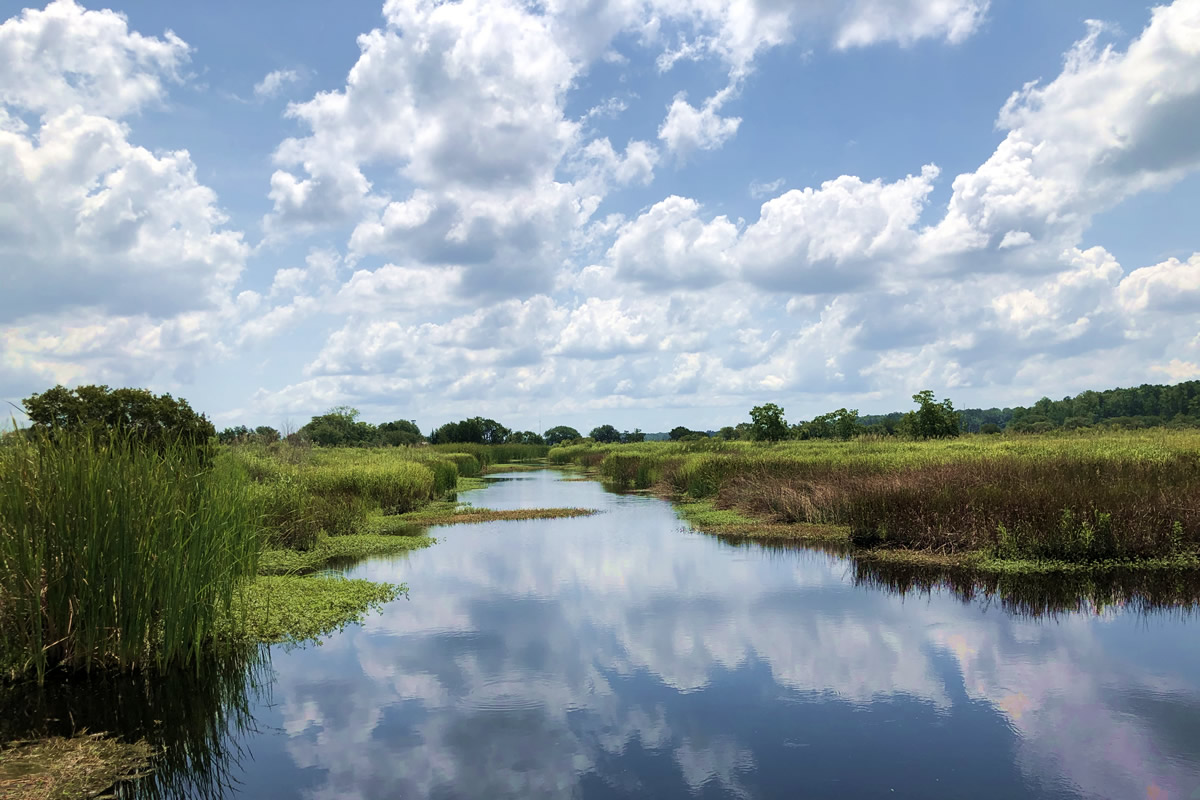
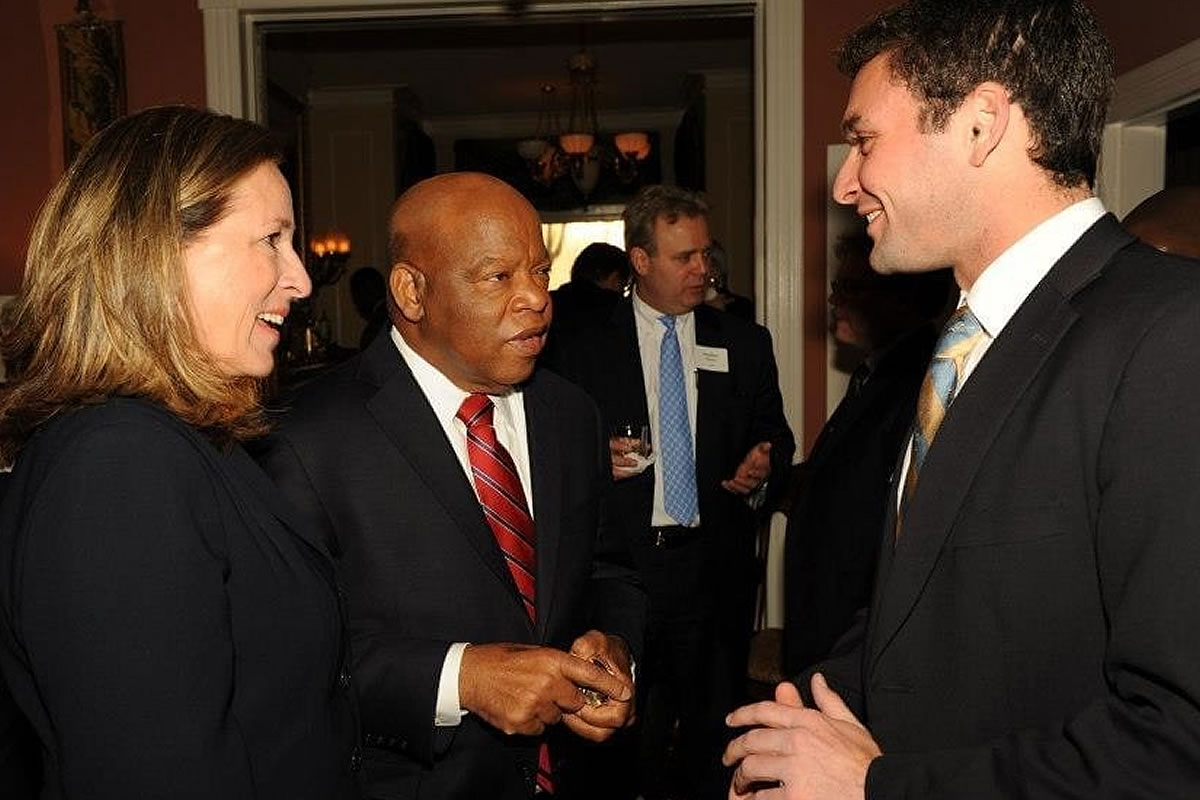

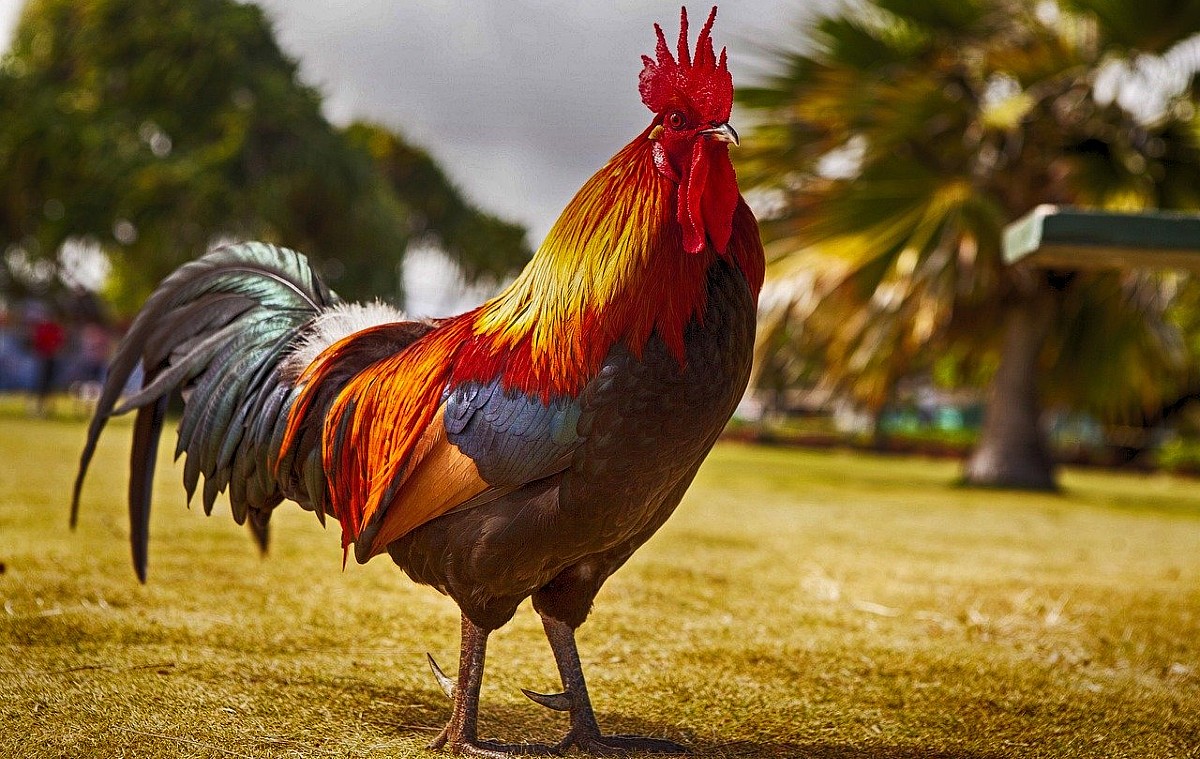

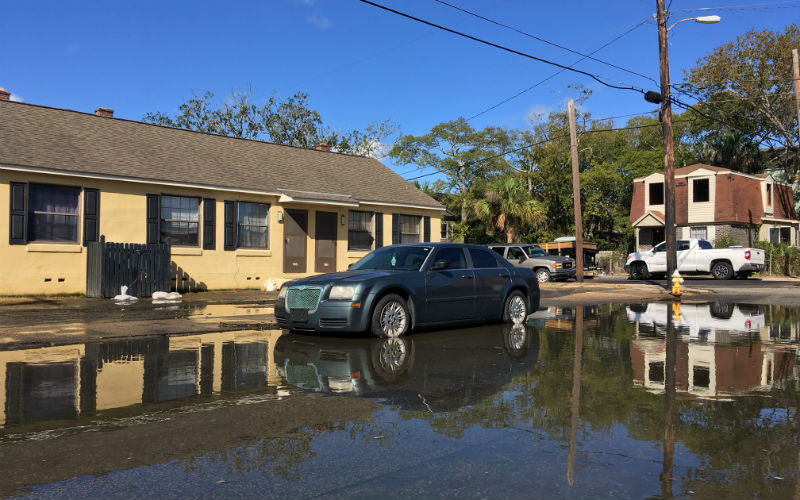
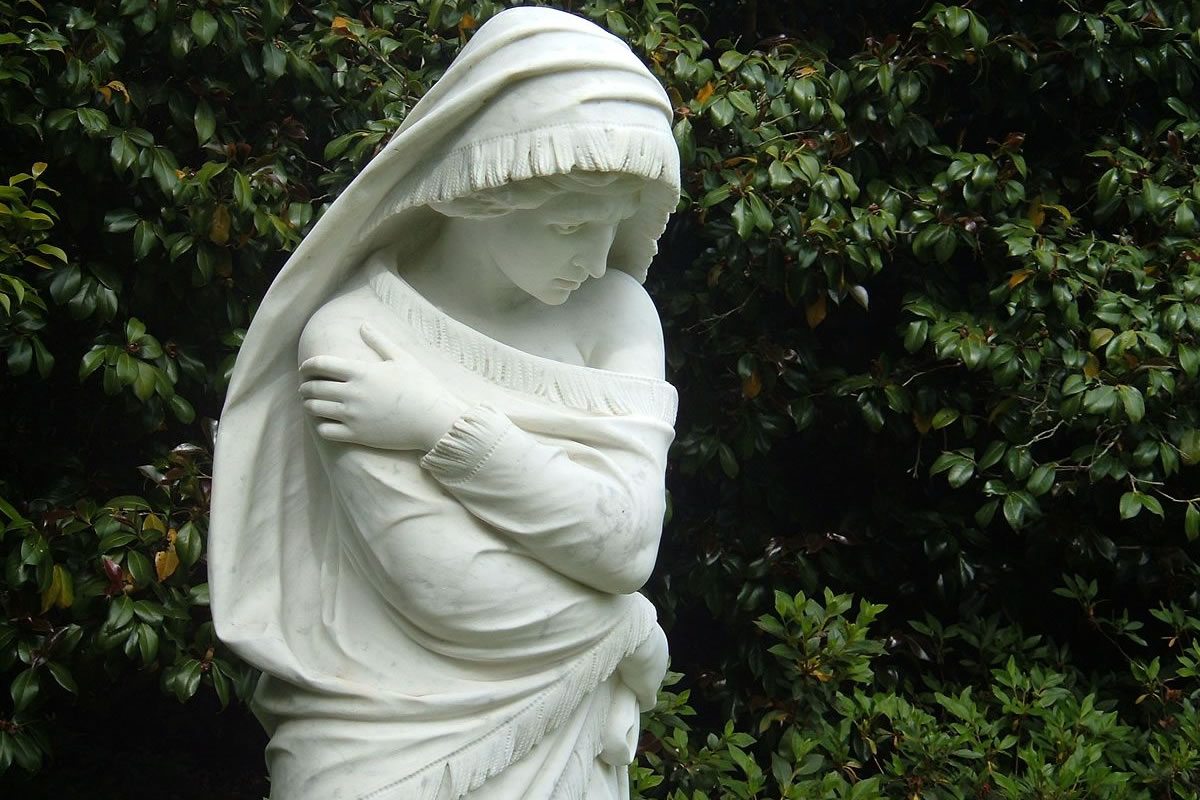

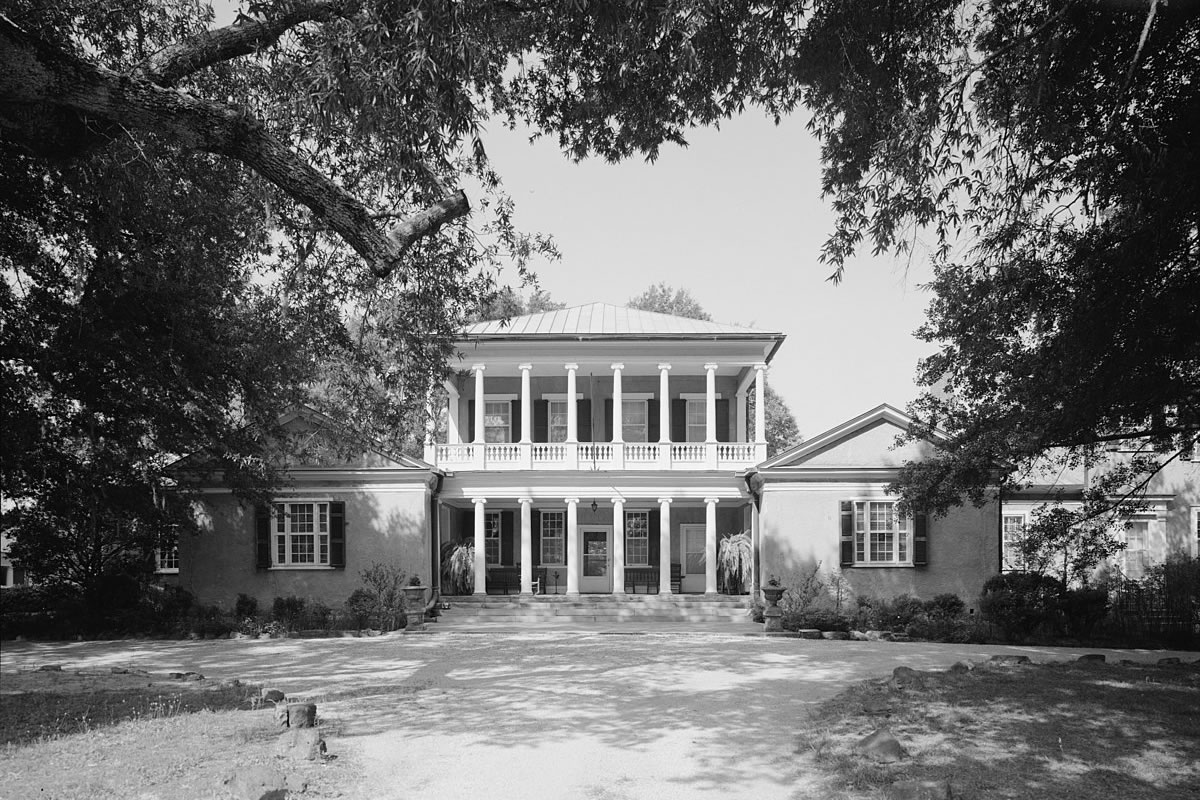

 We Can Do Better, South Carolina!
We Can Do Better, South Carolina!
























Pingback: NEW for 7/20: Remembering John Lewis; Bantam-roostering; Lowcountry Listens - Charleston Currents | Philanthropy Media Network